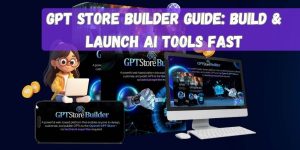Affiliate marketing has emerged as one of the most effective and cost-efficient channels to drive online sales and generate brand awareness. However, ensuring the success of an affiliate marketing campaign requires careful planning and strategizing, including determining the optimal duration of the campaign. In this blog post, we will delve into the key metrics and strategies that can help marketers identify an ideal campaign length. By analyzing real-life examples, industry best practices, and actionable tips, we aim to equip readers with the knowledge to maximize their campaign’s impact and achieve optimal results.
- Understanding Key Metrics for Measuring Campaign Success:
Before diving into campaign duration optimization, it’s crucial to establish the key metrics that will help determine success. Some metrics to consider include:
a) Conversion rate: The percentage of visitors who complete a desired action, such as making a purchase or signing up for a newsletter.
b) Customer lifetime value (CLTV): The predicted net profit attributed to the entire future relationship with a customer.
c) Return on ad spend (ROAS): The revenue generated from advertising divided by the cost of the advertising. - Crafting the Appropriate Campaign Length Strategy:
2.1 Studying Historical Data:
Analyzing past campaign data can provide valuable insights into optimal campaign length. Identify trends, patterns, and any fatigue points where campaign performance wavered. Consider the following factors when reviewing historical data:
a) Time to conversion: Assess the average time it takes for customers to convert after clicking on an affiliate link.
b) Day of the week and time of day: Identify the days and times when conversions tend to peak, and consider aligning your campaign duration accordingly.
2.2 Aligning with the Customer Journey:
Different products, services, or target audiences require different durations for the customer journey. For example:
a) Impulse purchases: Campaigns for low-ticket items may benefit from shorter durations, as customers often make impulse buying decisions.
b) Considered purchases: Higher-ticket items or services may require a longer campaign duration, as potential customers often engage in thorough research before making a purchase.
- Real-Life Examples and Case Studies:
Case Study 1: A fashion retailer promoting limited-time offers
To create a sense of urgency and drive immediate conversions, the retailer employed a 48-hour flash sale. With a focused promotional period, the campaign successfully generated a 20% increase in conversions compared to longer-duration campaigns.
Case Study 2: A subscription-based service with trial offers
In this case, the service provider implemented a two-week trial along with a co-branded affiliate marketing campaign targeting potential customers. The longer duration allowed prospects to fully experience the service, resulting in a 25% increase in trial subscriptions compared to shorter trials.
- Industry Best Practices and Actionable Tips:
4.1 Split Testing:
Conduct A/B tests with different campaign durations to determine which length yields the best results. By comparing conversion rates, customer acquisition costs, and return on investment, marketers can identify the optimal duration for their specific niche.
4.2 Seasonality and Trends:
Consider seasonal periods, shopping events, and trends within your target audience’s industry. Adjust campaign durations accordingly to maximize the potential for engagement and conversions during peak periods.
4.3 Leveraging Automation and AI:
Utilize automated tools with artificial intelligence capabilities to track and analyze campaign performance in real-time. These platforms can provide valuable insights on campaign fatigue, enabling marketers to make data-driven decisions regarding suitable duration adjustments.
Conclusion:
Finding the optimal duration for an affiliate marketing campaign requires careful consideration of key metrics, understanding the customer journey, and studying historical data. By analyzing real-life case studies, industry best practices, and leveraging tips like split testing and automation, marketers can unlock the potential for peak campaign performance. With these strategies in place, marketers can confidently establish optimal campaign durations that drive conversions, increase revenue, and unlock long-term success in the competitive world of affiliate marketing.











